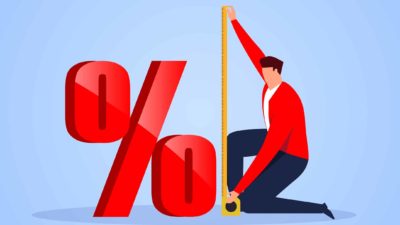1) The meme-stock frenzy has returned with the Wall Street Bets crowd likely piling into speculative US stocks like Bed Bath & Beyond and AMC Entertainment.
Bloomberg reports Bed Bath & Beyond stock "nearly tripled at one point during its nine-day winning streak, while the AMC capped a 65% rally of its own as speculative pockets of the stock market surge."
Bed Bath & Beyond is a struggling home-goods retailer dealing with slowing demand and elevated inventory levels. In late June, one bearish analyst said the company is in "the end days" after a "dumpster fire" first quarter report.
Still, that's music to the ears of the Wall Street Bets crowd, who pride themselves on collectively "sticking it" to the hedge funds who are short the stock. Such funds are sometimes forced to buy back their short positions, exacerbating the upward swing in the stock price… hence a stock like Bed Bath & Beyond surging almost 400% in less than two weeks.
Such organised, co-ordinated and collective action is illegal in Australia, so don't try this at home. Also, it's the antithesis of The Motley Fool's business focus investing philosophy. This is nothing more than pure speculation, something that usually ends badly.
What it does potentially signal is the renewed interest of retail investors. Probably not to the same extent as the COVID stay at home boom of March 2020, but there are signs of life.
Already we've seen former ASX darling Zip Co Ltd (ASX: ZIP) soar 140% in the past month, with fellow fallen buy now pay later company Sezzle Inc (ASX: SZL) up over 110% in the same period. Other short-term winners include Cettire Ltd (ASX: CTT) and Airtasker Ltd (ASX: ART), up 78% and 48% respectively over the past month.
Even after these dramatic moves – some of which may be justified given the indiscriminate tax loss selling seen in June – it's unlikely these companies, and many other former ASX fliers, will get back anywhere near their all-time highs in the foreseeable future. Buyer beware.
2) The push and pull of markets continues as the economy refuses to roll over into recession. The AFR reports that according to ANZ, "Australian consumers are continuing to spend on big items despite rising inflation and interest rates."
With an unemployment rate of just 3.5%, the lowest since August 1974, and job vacancies almost equal to the number of people unemployed, Australian consumers are happy to spend up, safe in their jobs, deferring the consequences of higher rent and mortgage payments to a later day.
3) Sadly, not all are safe in their jobs, with telco infrastructure company Megaport Ltd (ASX: MP1) laying off 35 staff even though it reported a positive EBITDA in the fourth quarter.
Gone are the days when tech companies could rely on the capital markets to replenish their cash burn as they went all in on growth. The game now is to get to break-even free cash flow to avoid taking on expensive debt or worse, a heavily dilutive capital raise when share prices are low.
On the plus side, gone also are the days when these former darlings would see their share prices smashed on any hint of a slowing in growth – the Megaport share price has jumped 8% higher to $8.85 in Tuesday trading despite it laying off staff.
Although it's up a whopping 80% in the past few weeks, the Megaport share price is still down almost 60% from its November 2021 highs. It's a long way back.
4) Like many of the top S&P/ASX 200 Index (ASX: XJO) stocks, the National Australia Bank Ltd (ASX: NAB) share price has been remarkably resilient during this period of extreme stock market volatility, up 10% in the past 12 months.
Today though, unlike the smashed up tech stocks, a decent trading update has seen the NAB share price fall 3.3% in Tuesday trade. Put it down to a lower net interest margin as higher funding costs and a tough competitive environment in mortgages weighed on profits.
As any customer with a savings account will know, banks should be beneficiaries of higher interest rates as the gap between what they pay depositors and charge lenders gets wider. Not so NAB, not yet anyway.
On the plus side, NAB are seeing few signs of mortgage stress, with troubled loans at just 0.7%, down from 0.75% in the prior quarter.
Writing in the AFR, James Thomson says an economy with low unemployment and a high level of household savings should provide resilience this cycle.
"If consumer spending can moderate as appears likely, and wage growth doesn't get out of control, perhaps the soft landing that the RBA craves can be engineered."
"Soft landing." Those two words are music to the ears of stock market bulls.
Despite today's fall in the NAB share price, the ASX 200 is trading in positive territory in early afternoon Tuesday trading.
Down just 5.6% year to date, during a period where we've seen central banks raise interest rates at almost unprecedented rates, the ASX 200 could just finish 2022 in positive territory. It would be a truly remarkable turn of fortune.









